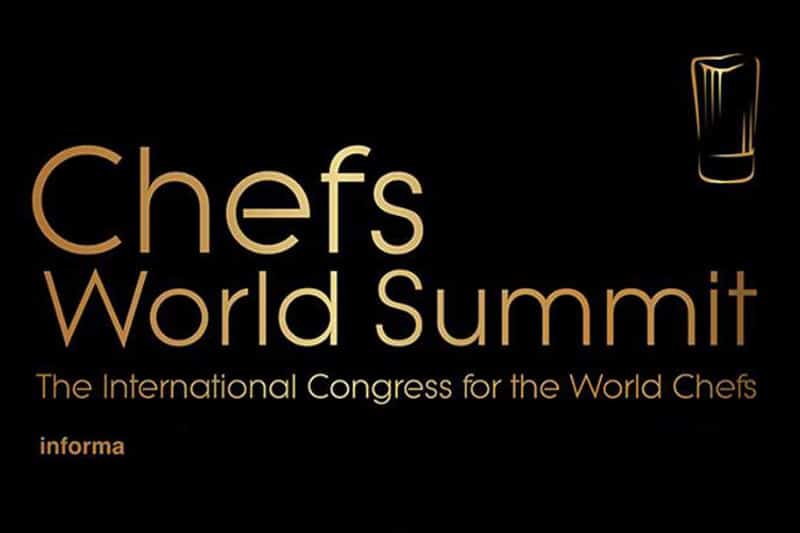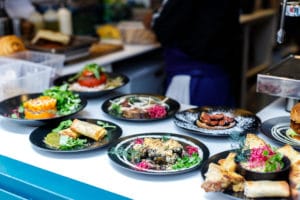I took part in this flagship event for traditional gastronomy. It was an opportunity for me to understand the current vision of Chefs in the field of plant-based gastronomy.
Veganism is still in the background
On this subject, it must be said, they are still a little behind. This is understandable, given that they have a long history of know-how and are steeped in the pure tradition of French gastronomy.
However, the subject of plants is well and truly on the table. Some of them already have some initiatives, but they remain discreet. At the Fairmont Hotel, for example, Chef Philippe Joannès gives a very small place to plants with almond milk in addition to soya milk at breakfast, and a plant-based dish available for room service.
Organic and gluten-free already in the spotlight
Other Chefs go further, with a clear commitment to organic, local products and seasonal cuisine. Like Chef Paolo Sari, who has made Elsa the first 100% organic restaurant certified by Ecocert. And Chef Gianfranco Chiarini who proposed a totally plant-based “Super Mousse” recipe.
Eric Kayser, Bridor de France, LBP Monaco and Délifrance already have a gluten-free range. Plant-based is still to be explored by these curious and interested artisan bakers.
In France, it is (unfortunately) the restrictive foods that bring new concepts. Gluten-free is proof of this. Producers are adapting to the demands of Chefs, who in turn are adapting to the demands of customers. Organic and gluten-free are now well and truly established in people’s minds. Vegan will be the next step in this movement.
The precursors, these visionaries
Some people have already been convinced of this for a long time. Like Jean Montagard, a Chef and cookery teacher who has been promoting plant-based cuisine for almost 40 years. For him, “vegetarianism is a convivial art of living where gastronomy and dietetics, health and the environment are combined”. Or Jean-Luc Rabanel, inventor of “greenstronomy” and forerunner of the current trend towards “healthy eating”, he has been sublimating vegetarianism for over 15 years.
Other initiatives are also in place, such as the one of Jean-Luc Fessard, a journalist specialising in sustainable development. He has created the association Bon pour le climat, which proposes to restaurant owners concrete and positive actions to change food practices in order to preserve the planet and its climate.
As for Cyril Rouquet – Prevost, a multi-hatted Chef and finalist in MasterChef 2010, he is on the lookout for new trends and knows that plants will play a major role in tomorrow’s consumption.
Innovation where you least expect it
At the Chefs World Summit, I saw some amazing products such as Koppert Cress, a micro-vegetable producer. Brands are seriously starting to enter the plant-based movement, such as Délifrance which very recently launched its range of plant-based croissants.
Innovation as seen today by Chefs, seems to be primarily about working with the ingredients we all know (meat, fish, eggs, dairy products). But in my opinion, true innovation will come from questioning our way of eating and working with products that have been ignored until now. The recipes of the future are based on the past. The challenge will be to be innovative while keeping the basics of tradition.
What about tomorrow?
Tomorrow’s consumers will be more demanding, informed, volatile, curious and sensitive to quality, so it is up to us to write the future of gastronomy.
This first edition of the Chefs World Summit is just the beginning of the evolution of gastronomy. For the next edition, I hope that we will talk more about the role of plants in gastronomy, and that we will address the social issues related to them, because after all, our change in food is a consequence of the evolution of the society in which we live. The aim is to put plant-based gastronomy in the spotlight and to invite young Vegan Chefs who are bringing a new breath of fresh air to gastronomy today, and who are only too happy to share it.





